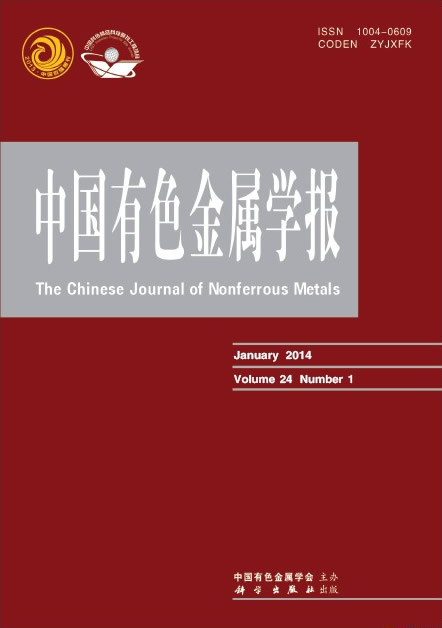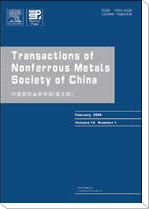中国有色金属学报(英文版)
Transactions of Nonferrous Metals Society of China
| Vol. 26 No. 5 May 2016 |
(1. Key Laboratory of Nonferrous Metal Materials Science and Engineering, Ministry of Education,
Central South University, Changsha 410083, China;
2. School of Materials Science and Engineering, Central South University, Changsha 410083, China)
Abstract:The tensile properties and fatigue behavior of an Al-Zn-Mg-Cu alloy were investigated by performing tensile tests and fatigue crack propagation (FCP) tests. The tensile results show that lower aging temperature modified retrogression and re-aging (RRA) process enhances the elongation, but reduces the strength of the alloy, as compared to conventional RRA process which employs peak aging temperature. Both ductility and strength, however, are increased by employing a natural aging prior to re-aging based on the former modified RRA process. Fatigue test results show that both routes reduce FCP rate. Especially, the lower re-aging temperature modified RRA process obtains the lowest FCP rate. Natural aging treatment could enhance the nucleation rate of GP zones. A large amount of GP zones could be cut by dislocations, which is responsible for the highest tensile strength and elongation, as well as lower FCP rate.
Key words: Al-Zn-Mg-Cu alloy; multistage-aging process; tensile properties; fatigue property; GP zone


